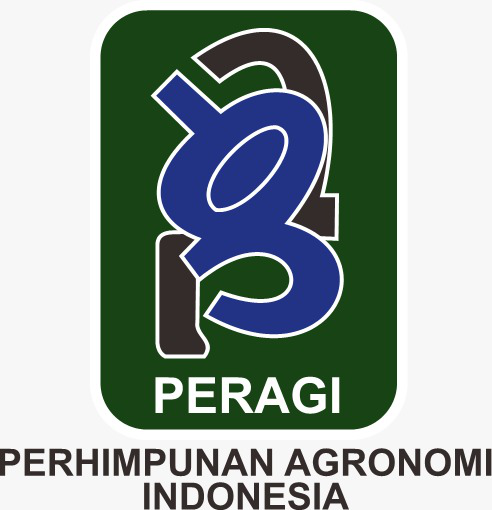Application of Coffee Grounds Organic Fertilizer on The Growth and Production of Cucumber Plants (Cucumis sativus L)
Abstract
Cucumis sativus L, commonly known as cucumber, is a creeping vine plant and a member of the Cucurbitaceae family known for producing fruit-bearing vegetables. Cucumis sativus plants originate in the Asian continent, specifically in North and South Asia. The primary objective of this study is to investigate the development and yield of cucumber plants, focusing particularly on the impact of varying doses of organic fertilizer derived from liquid coffee grounds. Specifically, the study seeks to assess the effects of these treatments on plant height, time to flowering, time to harvest, and the weight of the fruit produced by cucumber plants. This study was conducted within the idyllic housing complex from March to May 2024. The research used a factorial randomized block design (RAK) with a single factor. The dosage parameters for coffee grounds fertilizer are as follows: P0 serves as the control group, P1 involves a dosage of 25 ml per plant, P2 utilizes a dosage of 50 ml per plant, and P3 applies a dosage of 75 ml per plant. The findings indicated that the various fertilizer treatments had a noteworthy impact on plant height, flowering age, harvest time, and fruit weight, suggesting a significant interaction between the two variables. Applying 75 ml of coffee grounds fertilizer per cucumber plant yields the best outcomes in promoting increased plant height, earlier flowering, shortened harvest time, and greater fruit weight in cucumber plants.Downloads
References
Agam, T., Listya, A., & Muntazori, A. F. (2020). Infografis Ampas Kopi sebagai Pupuk Organik Penunjang Pertumbuhan Tanaman. DESKOMVIS: Jurnal Ilmiah Desain Komunikasi Visual, Seni Rupa Dan Media, 1(2), 156–172. https://doi.org/10.38010/dkv.v1i2.21
Anggara,B. (2022). Pengaruh Kompos Ampas Kopi Dan Pupuk Npk 16:16:16 Terhadap Pertumbuhan Serta Hasil Prouksi Tanaman Seledri (Apium Graveolens L).Pekan Baru. Skripsi Universitas Islam Riau.
Cergia, M., & Sawir, H. (2019). Analisis Kualitas Pupuk Cair Dari Ampas Kopi Dan Teh. 1(2).
Daniel, D., Zahrah, S., & Fathurrahman, F. (2019). Aplikasi Limbah Cair Pabrik Kelapa Sawit Dan Npk Organik Pada Tanaman Timun Suri (Cucumis Sativus L.). Dinamika Pertanian, 33(3), 261–274. https://doi.org/10.25299/dp.2017.vol33(3).3839
Ginting, A., Hartati, R. M., & Rochmiyati, S. M. (2018). Pengaruh Berbagai Jenis Media Tanam Dan Dosis Pupuk Terhadap Pertumbuhan Dan Hasil Tanaman Timun.
Lisa, I., & Sari, A. S. N. (2021). Respon Pertumbuhan Dan Hasil Tanaman Mentimun (Cucumis Sativus L.) Terhadap Pemberian Dosis Pupuk Kascing. Pucuk : Jurnal Ilmu Tanaman, 1(2), 107–113. https://doi.org/10.58222/pucuk.v1i2.27
Purnomo, R., Santoso, M., & Heddy, S. (n.d.). The Effect Of Various Dosages Of Organic And Inorganic Fertilizers On Plant Growth And Yield Of Cucumber.
Purwaningrum, Y., & Sinaga, R. T. A. (2019). Aplikasi Pupuk Organik Cair Kulit Pisang Dan Pupuk Kandang Ayam Pengaruhnya Terhadap Pertumbuhan Dan Produksi Tanaman Mentimun (Cucumis Sativus L.). 7(1).
Undut, S. P., Sulistiyanto, Y., Sinaga, S., Sirenden, R. T., & Amelia, V. (2023). Pengaruh Pemberian Ampas Kopi Terhadap Pertumbuhan dan Hasil tanaman Caisim (Brassica chinensis L.) Pada tanah Spodosol. AgriPeat, 24(2),7–13. https://doi.org/10.36873/agp.v24i2.10802
Ungu, T. (2017). Respon Pertumbuhan Dan Produksi Tanaman.
Wulandari, S., Syafitri, T. M., Sella, E. F., Ningrat, B. C., & Wangi, N. S. (2023). Teknologi Sederhana Pemanfaatan Ampas Kopi untuk Pupuk Organik Cair. Jurnal Dehasen Untuk Negeri, 2(1). https://doi.org/10.37676/jdun.v2i1.3629
Copyright (c) 2024 Khairul Anwar Nasution, Novilda Elizabeth Mustamu, Novilda Elizabeth Mustamu, Kamsia Dorliana Sitanggang, Siti Hartati Yusida Saragih

This work is licensed under a Creative Commons Attribution 4.0 International License.
Authors who publish with Jurnal Agronomi Tanaman Tropika (JUATIKA) agree to the following terms:
Authors retain copyright and grant the Jurnal Agronomi Tanaman Tropika (JUATIKA) right of first publication with the work simultaneously licensed under a Creative Commons Attribution License (CC BY 4.0) that allows others to share (copy and redistribute the material in any medium or format) and adapt (remix, transform, and build upon the material for any purpose, even commercially) with an acknowledgment of the work's authorship and initial publication in Jurnal Agronomi Tanaman Tropika (JUATIKA).
Authors are able to enter into separate, additional contractual arrangements for the non-exclusive distribution of the journal's published version of the work (e.g., post it to an institutional repository or publish it in a book), with an acknowledgment of its initial publication in Jurnal Agronomi Tanaman Tropika (JUATIKA). Authors are permitted and encouraged to post their work online (e.g., in institutional repositories or on their website) prior to and during the submission process, as it can lead to productive exchanges, as well as earlier and greater citation of published work.







 More Information
More Information



